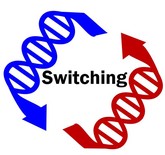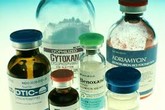Biosimilars/Research
Long-term stability of trastuzumab biosimilar under various storage conditions
Trastuzumab (TTZ) is a monoclonal antibody that interferes with the human epidermal growth factor receptor 2 (HER2). In some cancers, including certain types of breast cancers and gastric cancers, HER2 is overexpressed, causing cancer cells to reproduce uncontrollably. TTZ can be used in the management of these cancers.
Barriers and facilitators to biosimilar prescribing in the UK
At present, the rate of uptake of biosimilars is keenly debated among stakeholders in different healthcare specialties. Aladul et al. examined the perspectives on biosimilars among healthcare professionals (HCPs) from gastroenterology, rheumatology and diabetes specialities to shed light on barriers and facilitators to their prescribing in the UK [1]. In a qualitative, cross-sectional study, 22 HCPs (consultants, nurses and pharmacists) from five hospitals in the West Midlands were interviewed.
Liability chain of biosimilar switching
When an adverse event to a medicinal product, or a loss of efficacy, is experienced by a patient, the liability chain may potentially involve both the manufacturer and/or Marketing Authorization Holder (MAH) (products liability) and the healthcare professionals responsible for prescribing, dispensing and/or administrating (professional liability) the medicine.
Biosimilars - to switch or not to switch
Authors Marc Scherlinger and Thierry Schaeverbeke commented on the paper from Glintborg and co-authors ‘To switch or not to switch’ ,which reported the results of biosimilar etanercept switching in Denmark [1].
EMA continues to be open to alternative clinical development strategies for biosimilars
In the European Union (EU) and other highly regulated markets, companies need to prove the similarity of proposed biosimilars to the established reference product for gaining market authorization. European regulators recommend using a stepwise approach whose first steps consist of a demonstration of similarity at the analytical level and via non-clinical studies. In addition, as a later step, clinical studies are an important source of additional evidence.
Positive phase III results for rituximab biosimilar PF 05280586
Pfizer has presented positive phase III results for its rituximab biosimilar PF‑05280586 at the American Society of Hematology Meeting (ASH) annual meeting.
Long-term follow-up of switching to biosimilar infliximab
A study of long-term follow-up data after switching to biosimilar infliximab appears to show identical retention rates, according to French researchers [1].
Phase III study of biosimilar pegfilgrastim confirms safety and effectiveness in patients on myelosuppressive chemotherapy
Canada-based Apobiologix, a division of Apotex, reported results of an international, phase III, randomized, double-blind clinical trial to demonstrate biosimilarity between the Apotex pegfilgrastim biosimilar (Apo-Peg; Lapelga) and reference product Neulasta (Amgen) [1].
Biosimilars in Europe
The European Medicines Agency (EMA) has pioneered the regulatory aspects of biosimilars since the first approval of a biosimilar in 2006. With the last authorization of bevacizumab in January 2018, 44 biosimilar products have been reviewed by the Committee for Medicinal Products for Human Use (CHMP) of EMA, 41 of them having been granted a marketing authorization [1].
Safety of biosimilar infliximab in pregnant women with IBD
Introduction of the first biosimilar infliximab (CT‑P13, Remsima/Inflectra) for the treatment of inflammatory bowel diseases (IBDs) was aimed to reduce the healthcare cost burden and to increase the number of treated individuals with similar treatment results. Shortly after CT‑P13 has been authorized for usage in clinical practice, many concerns arose due to the fact that the principle of extrapolation of limited clinical results had been applied to the biosimilar, which led to approval of the biosimilar in all the indications of the originator biological (Remicade). However, these concerns have proved to be unfounded, as subsequent studies have confirmed the similar efficacy, safety and immunogenicity of CT‑P13 and Remicade in the general IBD population [1].













